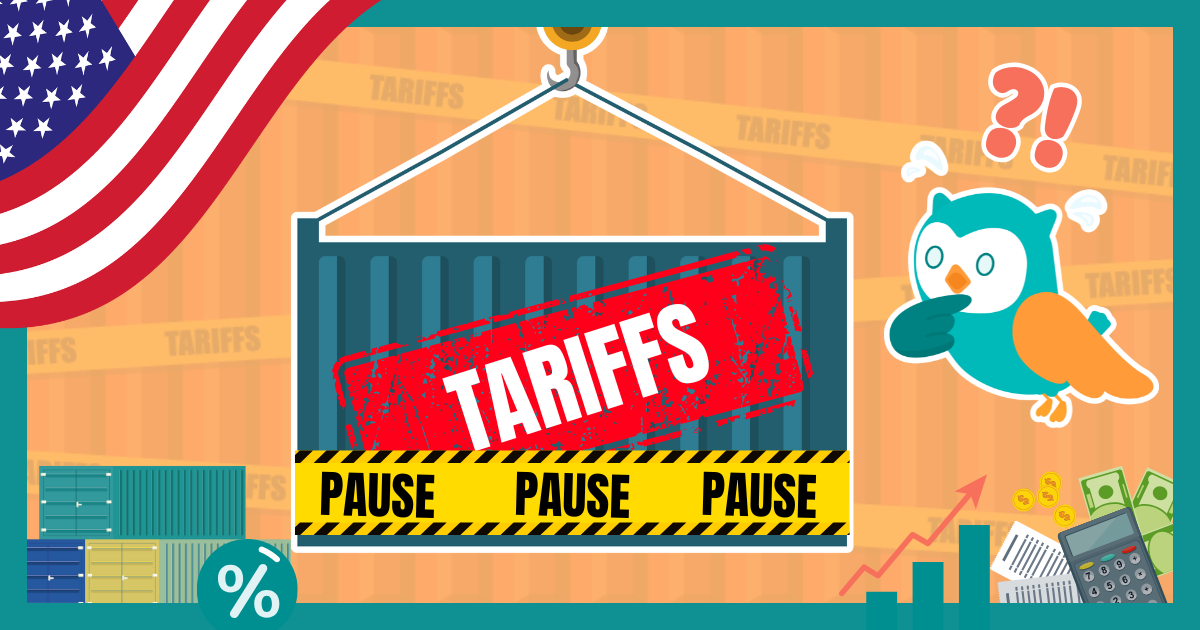Note: It was announced in November 2023 that MoneyOwl will be acquired by Temasek Trust to serve communities under a re-purposed model, and will move away from direct sale of financial products. The article is retained with original information relevant as at the date of the article only, and any mention of products or promotions is retained for reference purposes only.
______________
Investor letter written by MoneyOwl’s CEO Chuin Ting as she weighs in on how to be positive in spite of a market crash as the market will ultimately rebound ahead of the economy.
Yesterday was the worst one-day in the US stock markets since 1987. To have an index almost 10% down in a single day is a very rare event.
How do we think about rare events then, in relation to our investments?
The first popular framework of thought is to look at history. But let’s use history correctly because history is a selection of facts. The way the financial media uses history in this downturn is to sensationalise – worst day since 1987! But when we look at the occurrence of rare events, we see sharp rebounds after sharp sell-offs.
See the diagram below by Dimensional Fund Advisors. So, do not just consider the similarly at this point in time, this will make you fearful. But what happens next on a timeline, should encourage you!

Source: Dimensional Fund Advisors
Second, the perspective of statistics must be supplemented by underlying logic. This is especially when certain events may indeed be unprecedented and because what happens in the past will not repeat itself exactly.
In a Facebook post, I had explained why this is not a banking crisis and the Fed’s trillion-dollar liquidity injection last night spelled this out. And why is it that the stock market always rebounds? It is because global stock markets (not individual ones) are ultimately driven by earnings, and while different things affect earnings in the short term, the global aggregate demand that drives earnings over the long term always grows. This is because population and living standards increase, in global aggregates. This is the reason why over the last 90+ years — through two world wars, a Depression, the Cold War, an oil crisis, two Gulf Wars, 911, dot-com, SARS, Global Financial Crisis, European debt crisis, Brexit — the market always recovers and goes up.
So yes, today it is different in some ways, but no it is also not different. Unless you believe the COVID-19 will kill capitalism and markets where wars, terrorism, banking crises have not, this, too, will pass.
Just as the markets react ahead of the economy, the markets will also rebound ahead of the economy. And the Central Banks and governments have shown that they will not allow the system to come anywhere near what had happened, which should shorten the route to market recovery.
So, the next time we hear someone say on CNBC that the last time this happened in the stock market was in October 2008 or October 1987, we should be glad! For long term investors, bear markets are an opportunity to add a little booster with your dry powder. Caveat — just don’t feel you need to catch the bottom. Tranche in or if you can’t, keep to your plan. Do speak to your Client Advisor for advice, if you have concerns.
Yours faithfully,
Chuin Ting Weber, CFA, CAIA
CEO & CIO, MoneyOwl
Advisory: enquiries@dev.moneyowl.com.sg
Telephone: 6329 9188
moneyowl.com.sg
Disclaimer: While every reasonable care is taken to ensure the accuracy of the information provided, no responsibility can be accepted for any loss or inconvenience caused by any error or omission. The ideas, suggestions, general principles, examples and other information presented here are for reference and educational purposes only and are not meant to be a substitute for professional investment advice. The information and opinions expressed herein are made in good faith and are based on sources believed to be reliable but no representation or warranty, express or implied, is made as to their accuracy, completeness or correctness. Expressions of opinions or estimates should neither be relied upon nor used in any way as an indication of the future performance of any financial products, as prices of assets and currencies may go down as well as up and past performance should not be taken as an indication of future performance.
The author and publisher shall have no liability for any loss or expense whatsoever relating to investment decisions made by the reader. This article should not be construed as an offer or solicitation for the subscription, purchase or sale of any fund.




